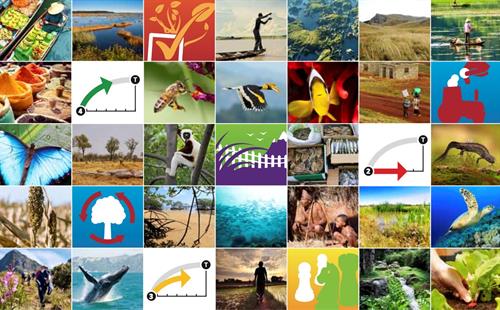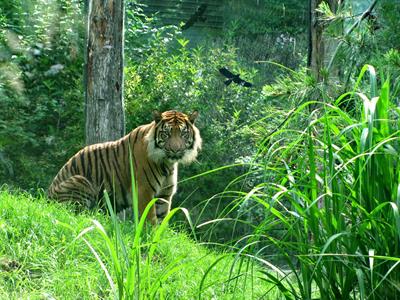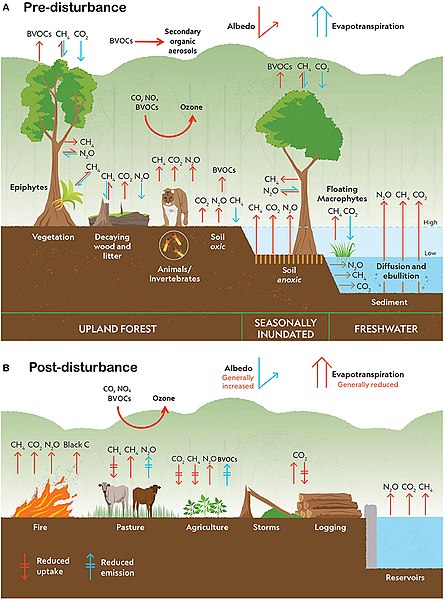
PUMPA - SMART LEARNING
எங்கள் ஆசிரியர்களுடன் 1-ஆன்-1 ஆலோசனை நேரத்தைப் பெறுங்கள். டாப்பர் ஆவதற்கு நாங்கள் பயிற்சி அளிப்போம்
Book Free DemoEarth is filled with many species of plants and animals. Around 70 −100 \ lakh species are present on the earth. All these animals and plants together are called Biodiversity. A variety of organisms are essential for humanity's survival and well-being. Biodiversity - "Bio" means life, and "diversity" means different or varieties.
Biological diversity is the variety of life forms on the earth and the interdependence of all living things.

Biodiversity
India is filled and is full of forests and wildlife.
Forests and their importance:
Forests are an essential part of our environment since they are a habitat for microorganisms, flowering plants, shrubs, climbers, and dense trees and provide a wide habitat for wild animals.

Forests providing habitat for wild animals
Forests contribute to the economic development of our country. They are essential for human life because they provide a diverse range of renewable natural resources. Forests are renewable resources covering nearly 30 \ % of the world land surface. They provide timber, wood, fodder, fibre, paper, spices, natural rubber, spices, cork, gum, honey, and medicinal plants.

Forest products
Forests are a major factor of environmental concern. Forests produce oxygen through photosynthesis and maintain the carbon dioxide levels present in the atmosphere. Thus, they act as a carbon sink.

Forests acting as a carbon sink
Forests also regulate climatic conditions, control the surface water runoff, protects the soil from soil erosion, increase rainfall, reduce global warming, prevents natural hazards such as floods and landslides.
They protect wildlife, maintain the water cycle, fulfil our freshwater requirements, and act as catchments for water conservation. Forests also help to preserve the ecological balance.
Reference:
https://pxhere.com/en/photo/1242672
https://commons.wikimedia.org/wiki/File:Climate_change_disturbances_of_rainforests_infographic.jpg